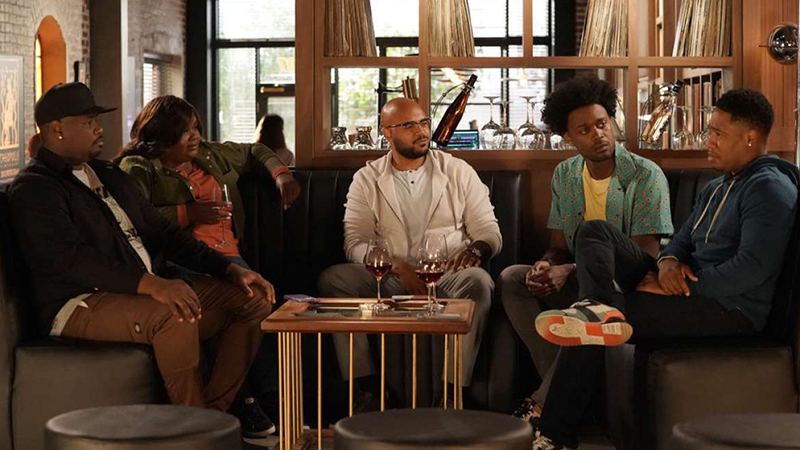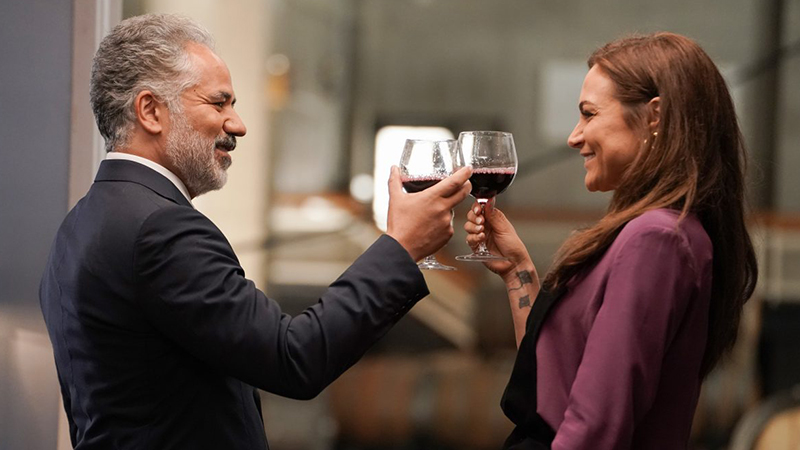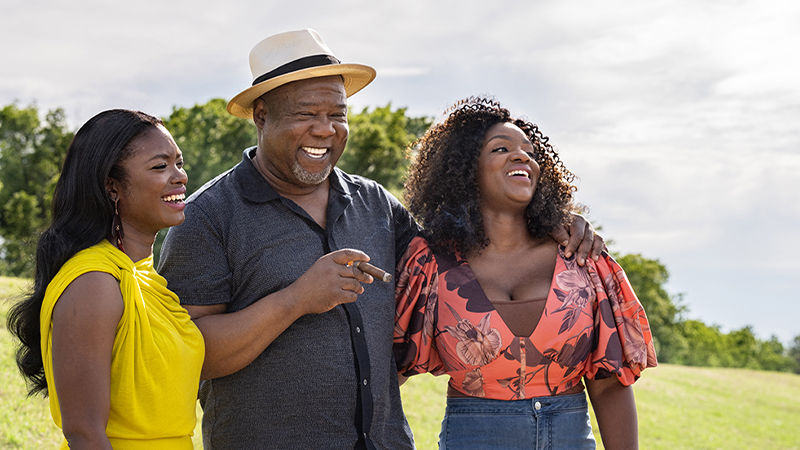It’s no secret that wine’s portrayal on TV has historically been less than inclusive, and while that may have been an accurate depiction of the realities of the industry in years past, today’s wine drinkers, makers, and influencers are a diverse group of individuals. The wine space is evolving, and thankfully so is its place in pop culture with shows like NBC’s “Grand Crew,” Hulu’s “Promised Land,” and “The Kings of Napa” on OWN. With wine at the center of these programs, it would be easy to assume that they would be educating viewers or made for an audience of wine fanatics. But what these shows often lack in wine information, they make up for in representation by cracking open the conversation about diversity and inclusion in wine.
Debuting with almost back-to-back premiere dates, the arrival of these minority-cast wine series couldn’t be more timely, with interest in wine culture among TV viewers rising, as well as deliberate product placement and honorable mentions in hit shows like “Succession.” With distinct storylines, characters, and tones, these shows feature wine in ways that feel relatable and, most importantly, celebratory of their minority actors. They also boast seasoned BIPOC creators who undoubtedly felt motivated by the void in wine representation on TV. In an interview with Oprah Daily, for example, “The Kings of Napa” creator Janine Sherman Barrois, (formerly of the series “Claws”) credits a trip to a Santa Barbara vineyard as the show’s inspiration. Having never encountered a Black-owned vineyard in pop culture or real life, she saw the potential for a TV drama focused around a family-owned vineyard and set about creating a script.
The Lineup
“Grand Crew,” NBC’s down-to-earth comedy created by Phil Augusta Jackson (of “Insecure” and “Brooklyn Nine-Nine” fame), centers around a group of Black friends living in Los Angeles and their newly found hangout, the Grand Crew wine bar. Like many millennial-minded sitcoms, the group navigates the ups and downs of life, relationships, and friendships. Though the topic of wine appears to be more a clever play on words than part of the show’s central premise, “Grand Crew” manages to do something unique by tackling a range of stereotypes and tropes, such as token syndrome, that are prevalent within the young Black community.

For starters, there’s the “crew’s” weekly gathering at the wine bar; scenes of their get-togethers not only shed light on the growing community of Black wine lovers but also introduce viewers to Black-owned wineries like Darjean Jones Wines and Theopolis Vineyards. Throughout their dialogue, the show’s characters casually sprinkle terms hinting at some wine knowledge, but at its core, the show remains a lighthearted sitcom with wine as its sidekick. Still, it is refreshing and uplifting to see POC frequenting the wine bar week after week.
In a different yet equally important direction, “Promised Land” follows the wealthy Sandoval family and their winery, Heritage House. A true drama, the series is laced with secrets and backstabbing as the siblings and scorned ex-wife/new wife’s best friend (lest we forget this is a drama) fight for power and control of the lavish wine estate. The show boldly dives into immigration and includes lots of subtitled Spanish-language dialogue, not often seen on prime-time TV channels. Here, wine is more of a focal point; throughout the first few episodes, viewers are privy to elements of winemaking with glimpses of the vineyards being farmed, and brisk walk-throughs of production facilities where the wine is made. There is also a brief mention of both the newly appointed CEO and oldest sibling Veronica, and the ambitious but overlooked step-son Mateo’s degrees in viticulture.

Meanwhile, the storyline in “The Kings of Napa” centers around a wealthy Black family-owned vineyard and the drama that ensues when their father passes away. Leaving his kids to manage the reins of the business exposes a twisted web of family secrets, and the winding storyline has everything — death, exorbitant wealth, extortion, and family rivalries — everything except hearty wine material.
Even with the sommelier-consulted writing and the spurts of formal wine education received by the actors of these particular shows, they seem to fall flat on any true wine education. However, they are not without purpose as they further open the discussion of acknowledging and embracing the BIPOC interest in wine.

Raising a Toast
While their premises vary, they’re starting conversations; “#GrandCrew makes me want to drink wine with my friends at the end of a workday,” tweets David Ellis (@David_SouloMind); “#GrandCrew is just the sitcom I needed and now I want a wine crew,” shares another user. Although seasoned enthusiasts might find the wine aspect of the shows missing or inadequate, each series succeeds in a different context — by focusing on an audience and consumer that the wine industry often overlooks. Wine’s consumer base is diversifying to include more BIPOC, and marketing efforts of big wineries should be as well. Each of these series is a small step in drawing attention to that market share, while also serving as an approachable yet engaging lens bringing BIPOC into wine. With so many wins, don’t these wine-ish TV shows deserve your attention? I’d certainly raise a toast to that.
